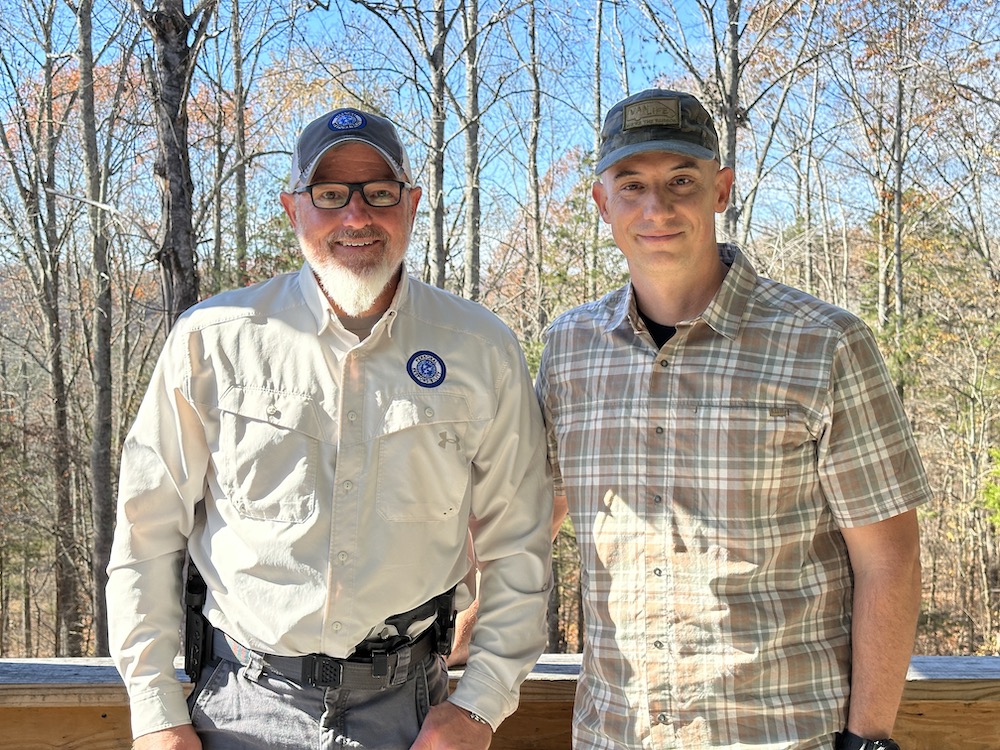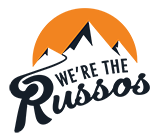This post may contain affiliate links.
In this episode of the RVing with Joe & Kait podcast, we explore the topic of personal safety and preparedness while on the road, featuring law enforcement veteran Jeff Dooley. With over 26 years of experience, Jeff shares invaluable insights into developing a safety-focused mindset, essential for ensuring a secure and enjoyable RVing experience.
As we all know, RVing is about the freedom and joy of exploring new places. But it’s equally important to do so safely and with the right preparation. We hope this episode provides you with valuable insights and practical tips for your RV adventures.
Safety on the Road with Jeff Dooley

Where to watch/listen
- Watch on YouTube
- Listen on Spotify
- Listen on Apple Podcasts
- Listen on Amazon Music
- Listen on iHeartRadio
- Listen on Pandora
- Listen on Podcast Addict
If you enjoyed this episode of RVing with Joe & Kait, please leave a review on Apple Podcast or Spotify. It would mean a lot to us. Thank you!
Episode Guest
Jeff Dooley is the owner and lead instructor of Personal Responsibility LLC. He is a retired Sergeant for a local law enforcement agency with over 26 years of experience. During his career Jeff served in numerous units, including the Crime Suppression and Narcotics units, SWAT and K-9 units, CID, Patrol, and Firearms Training Unit.
Jeff is a Rangemaster with Gunsite Academy where he teaches pistol, rifle, shotgun, and CQP classes. Jeff is a life member of the NRA, NRA certified pistol instructor, member of IALEFI, a certified Tennessee P.O.S.T. firearms and tactics instructor, and certified FBI firearms instructor.
Links:
Resources Mentioned in this Episode
- RV Safety Class Information & Sign Up
- RV Safety and Preparedness
- Traveling with Firearms in an RV
- Garmin Satellite Communication Device
- CPR/First Aid Class
- Stop the Bleed
- Medical Kits
- Motion sensor
- The Books of Five Rings by Miyamoto Musashi
- We’re the Russos YouTube Channel
- Newsletter sign up
- Book 1: Take Risks
- Book 2: Tales From the Open Road
Key Highlights
- Pre-Trip Planning for Safety Jeff introduces the vital concept of ‘environmental mapping’
- Being Your Own First Responder The importance of self-reliance in emergency situations, carrying medical supplies and knowing basic first aid especially when you’re far from immediate help.
- Leveraging Technology for Safety How modern gadgets can be lifesavers in remote spots and setting up sensors around your RV for enhanced security.
- Self-Defense: More Than Just Firearms Jeff discusses alternative self-defense tools, highlighting the importance of a well-rounded approach to personal safety.
- Real-Life Scenarios Jeff provides insights on handling potential threats and emergencies while RVing.
Chapters
00:43 Welcome and introduction
02:35 What it means to have a safety mindset
04:41 How to apply safety and preparedness while traveling in an RV
06:22 Tools to carry and considerations for safety on the road
09:07 Importance of carrying a med kit and knowing first aid
10:58 Understanding and implementing situational awareness and multi-layered protection
17:43 Urban camping and how to deal with a knock in the middle of the night
18:30 Practical Safety Tips for RVers Practical advice and actionable tips to enhance safety while RVing.
20:50 Carrying bear spray or wasp spray for personal safety
23:49 Jeff’s approach to personal protection
31:30 Real life safety scenarios and how to handle them safely
55:29 Concluding remarks and final thoughts from Jeff
Book a 60 Minute Call with Joe
Are you researching your first RV or have questions about RVing? Let’s see if booking a 60 minute session with Joe is the right fit for you.
